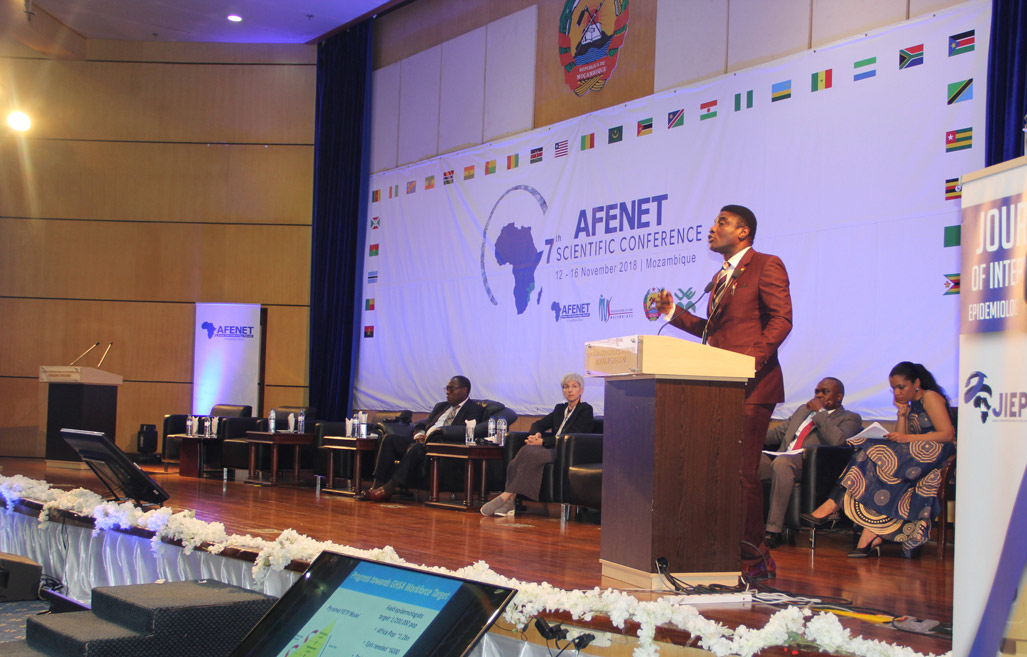The 7th AFENET Scientific Conference was held in Maputo, Mozambique with the theme “Building Resilient and Sustainable Public Health Systems in Africa through Field Epidemiology Training”. The event was declared open by the country’s Minister for Health, Dr. Nasira Abdula. In her opening speech, she appreciated the efforts put in by epidemiologists in building a strong and healthy nation. The conference had in attendance, the Director General of the National Institute of Health, representatives from TEPHINET, representatives from the US CDC, representatives from Africa CDC, Board chairman of AFENET, WHO, epidemiologists and representatives from the academia.
Four hundred and fourteen (414) presentations were made at the conference from various public health problems. The conference had seven (7) plenary sessions with 16 presentations on public health surveillance, global health security, workforce development, emergency response, resource mobilization & networking, building collaborations and innovations. Awards were presented to outstanding presenters at the end of the conference. Dr. Mohammed Abdulkarim a Cohort 9 fellow won the awards for the “Best Outbreak Investigation” and “Best Oral Presentation”. Additionally, Lillian Okeke was the first runner-up in the photo contest.
During the conference, AFENET Corps of Disease Detectives (ACODD) South Africa branch was inaugurated. ACODD is aimed at ensuring maximum and efficient utilization of the well-trained workforce in response to disease outbreaks and other public health emergencies. Likewise, the journal of Epidemiological intervention and Public Health was launched during the event. The journal will be used for the publication of researches and studies conducted in the continent.
AFENET conference is a biennial event that brings all field epidemiology and laboratory training programs together to share scientific knowledge. Prior to the commencement of this year’s conference, six hundred and ninety-nine (669) abstracts were received from thirty-two (32) countries.

